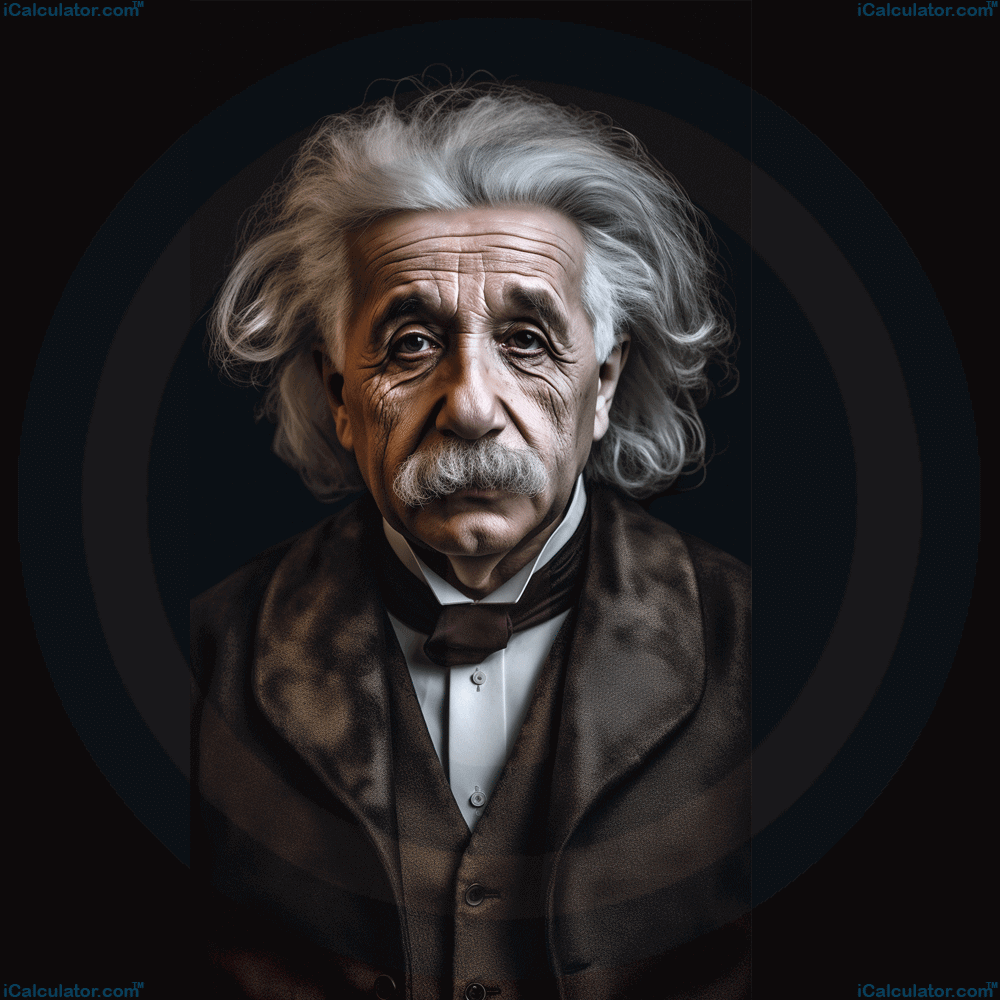Menu
Albert Einstein - A Revolutionary Physicist

Please provide a rating, it takes seconds and helps us to keep this resource free for all to use
About Albert Einstein
Albert Einstein was born on March 14, 1879, in Ulm, in the Kingdom of Württemberg in the German Empire. He passed away on April 18, 1955, in Princeton, New Jersey, United States. He married twice in his life, first to Mileva Marić, with whom he had three children, and later to Elsa Einstein.
Einstein studied physics and mathematics at the Polytechnic Institute in Zurich, Switzerland, and began working at the Swiss Patent Office after his graduation. He later held academic positions at several prestigious institutions including the University of Zurich, the University of Prague, and the University of Berlin. In 1933, he moved to the United States due to the rise of the Nazis and accepted a position at the Institute for Advanced Study in Princeton, New Jersey, where he remained until his retirement.
Einstein was always curious and questioned conventional wisdom. His interest in physics was sparked by his encounter with a compass at the age of five, which led him to wonder what made the needle move. This relentless curiosity and the desire to uncover the laws of nature guided him towards becoming a physicist.
Einstein's Discoveries
Einstein is best known for his development of the theory of relativity, which revolutionized the field of theoretical physics. This was divided into two parts: special relativity (1905) and general relativity (1915). These theories profoundly altered our understanding of space, time, and gravity.
Einstein faced significant challenges while developing his general theory of relativity, primarily due to the complex mathematics involved and the radical reimagining of gravitation it required. However, the confirmation of his theory during the solar eclipse of 1919, which demonstrated the bending of light around the sun, catapulted him to worldwide fame.
Einstein's Key Achievements
Einstein received the 1921 Nobel Prize in Physics "for his services to Theoretical Physics, and especially for his discovery of the law of the photoelectric effect". This law was instrumental in the development of quantum theory. He also made significant contributions to statistical mechanics, especially his formulation of the quantum theory of a monatomic gas which predicted Bose-Einstein condensation.
Einstein's Formulas
The most famous equation associated with Einstein is his mass-energy equivalence formula, which states that the energy of an object (E) is equal to the mass (m) of that object times the speed of light (c) squared.
Where:
- E: Energy of an object
- m: Mass of the object
- c: Speed of light in vacuum (approximately 3 × 108 m/s)
Albert Einstein Quotes
The great physicist Albert Einstein is renowned for their intellect and advancement in the world of physics, here are some of their most famous and insightful quotes
- Beyond Boundaries
- Child Genius
- Courage
- Fuel Your Curiosity
- Human Stupidity
- Income Tax
- Intuitive Knowledge
- Live For Today
- Oppertunity
- Passionately Curious
- Ride A Bicycle
- Solve Our Problems
- Stop Questioning
- Widening Compassion
Albert Einstein Tutorials and Calculators
The following tutorials and calculators are influenced by the work the great physicist Albert Einstein, each calculator contains a tutorial that explains Albert Einstein in the field
- Wavelength to Energy Calculator
- Velocity Calculator in Relativistic Events
- Physics Thermodynamics Lesson 13.3.3 - States of Matter
- Step Potential Probability Current for Zone II Calculator
- Physics Relativity Tutorial 18.3 - Space and Time in Einstein Theory of Relativity
- Relativistic Pressure Calculator
- Physics Nuclear Forces Lesson 20.2.2 - Mass - Energy Equivalence
- Modern Physics Tutorial 19.2 - The Photoelectric Effect
- Mass and Impulse Calculator in Relativistic Events
- Lorentz Transformation of Coordinates Calculator
- Eigen Function of Particle in a Three Dimensional Rectangular Box Calculator
- Friedmann Equation Calculator
- Energy of Photon Calculator
- Energy Calculator in Relativistic Events
- Physics Elementary Particles Tutorial 21.3 - Classification of Elementary Particles. Quarks and Charm
- Electromagnetic Field Energy Density Calculator
- Physics Cosmology Tutorial 22.9 - Expansion of the Universe
- Cosmological Matter Density Parameter Calculator
- Black Hole Gravitational Redshift Calculator
- Black Hole Temperature Calculator
- Atomic Mass Calculator
- Angular Radius of Einstein Ring Calculator